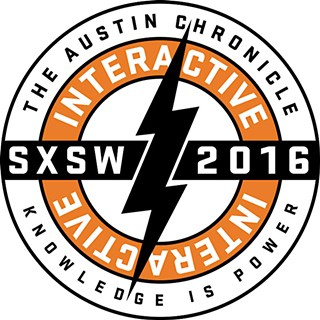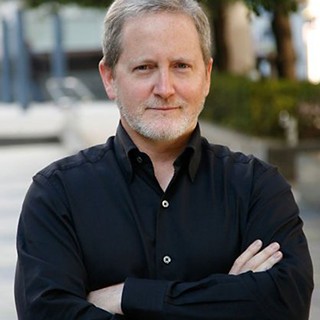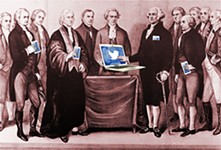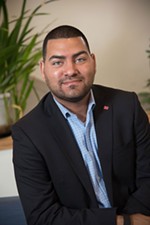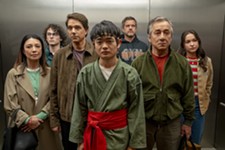SXSWedu Recap
Education tech finds new ways to reach kids
By Richard Whittaker, Fri., March 11, 2016
In an age of standardized testing swallowing up time, energy, and budgets, it may seem naive to suggest that schools should put more emphasis on traditional educational resources like libraries, or new, open-ended learning experiences like the practical skills inherent in the Maker Movement. But at this week's SXSWedu conference, the emphasis was on proving that developing those "soft skills" outside the testing regime belongs in the modern classroom.
The important lesson, according to littleBits founder/CEO and keynote speaker Ayah Bdeir, is that Maker proponents can't simply declare war on the standardized testing regime, or treat its advocates like they don't support kids. She said, "You may disagree, you may have different standards, you may oppose standardized testing, but vilification isn't helping anyone."
Instead of presenting the Maker Movement as an alternative to the current system, or forcing already over-taxed educators and administrators to find more time and intellectual space, it's the responsibility of its supporters and innovators "to bridge the gap" and to work on revising curriculum standards to mean Making fits in there. She said, "It is our job to make the work easier for administrators and teachers."
Bdeir emphasized that that includes making life easier for Maker advocates in the classroom, who sometimes suffer from the accusation and conviction that, because it's packaged in a fun way, learning practical skills "isn't 'science' enough." Instead, it's about reformulating the idea of education. She suggested a thought experiment of a very unconventional learning opportunity. Imagine a kid who wants to annoy their siblings: Rather than heading them off, it could be an opportunity to teach them about how to make the world's best sibling-annoying machine, and hidden in that could be lessons about physics or electronics or engineering. It's an extreme example, but Bdeir argued that it points to the classroom-based Maker Movement's core message: It's not about inflicting education, but about finding learning opportunities in children's inherent interests. She said, "I've found that creating divisions between – this is school time, this is playtime, this is afterschool, this is Minecraft time – human beings don't work like that."
Andrew Smith Lewis, executive chairman and co-founder of adaptive learning platform developer Cerego, echoed the idea of inserting tech seamlessly into the classroom. He sent a stern warning to companies and vendors trying to blind educators with flashy hardware or software: It won't work. Putting it bluntly, he said, "If you're in the ed tech business, you're in the education business."
He cited Donald Norman's book The Invisible Computer and its core conceit that, after a while, people go blind to technology. The argument is that trying to pitch digital or electronic learning as something special is a dead end, because everything students do has an electronic or digital component. "Watches are filled with gears and cogs," he said, "but no one talks about mechanical watches."
That's a sentiment that would probably resonate with Bdeir, who did her best to demystify the Maker concept, saying: "A room, a bunch of stuff, and a table. That's a Makerspace."
Increasingly, educators are looking at libraries as a potential space for practical yet less formally structured education like the Maker Movement. Mark Danforth, founder of literacy and digital learning advocates BookAround, welcomed that change, and suggested that "we are entering the second golden age of libraries." That may seem optimistic in a time when school districts are laying off librarians (more victims of the testing obsession and slashed budgets) and disposing of physical libraries, then thinking they can be replaced with a bunch of iPads. Yet Danforth argued for the continued existence of the physical library space, and a new need for professionals who can navigate them. Moreover, this new era still speaks to the core skills of librarians: of knowing how to find the right information in a complicated and data-rich environment or, as he dubbed it, "information literacy."
Teaching kids how to use search engines effectively is, he proposed, no different to grasping the nuanced details of the Dewey decimal system. "Sources are not all created equal," he said, and if librarians can teach kids to look beyond the first search result, or stop them falling back on the Wikipedia page, then they've simply reinforced the need for their skill-set. "Ultimately," he said, "it comes down to being able to access different kinds of content."
Got something to say on the subject? Send a letter to the editor.





